
David A Andelman
Directeur exécutif de The Red Lines Project, David A. Andelman est chroniqueur pour CNNOpinion. Et auteur de la page SubStack Andelman Unleashed. Son dernier livre, "A Red Line in the Sand: Diplomacy, Strategy, and the History of Wars That Could Still Happen," a été publié en janvier 2021, avec son podcast Evergreen. Le 1er décembre 2021, par décret du président Emmanuel Macron, il est décoré du grade de chevalier de la Légion d'Honneur. Il a reçu le Deadline Club Award for Best Opinion Writing pour ses commentaires sur CNN en 2018 et en 2019 pour ses chroniques Reuters. Il a été pendant sept ans rédacteur en chef du World Policy Journal. Auparavant, il a été un rédacteur de Forbes. Avant, il a été correspondant national et étranger pour le New York Times à New York et à Washington, en tant que chef du bureau de l'Asie du Sud-Est, basé à Bangkok, puis chef du bureau de l'Europe de l'Est, basé à Belgrade. Après, il rejoint CBS News où il a été pendant sept ans correspondant à Paris. Il a ensuite servi en tant que correspondant à Washington pour CNBC, et un rédacteur de Bloomberg News. Il a voyagé et rapporté de 86 pays. Il a reçu le prix 2017 du New York Press Club du meilleur commentaire politique pour ses chroniques USAToday. Il est l'auteur de cinq livres, The Peacemakers, publié par Harper & Row, et The Fourth World War, publié par William Morrow, dont il est co-auteur avec le comte de Marenches, longtemps chef du renseignement français (DGSE). Son troisième livre, A Shattered Peace: Versailles 1919 and the Price We Pay Today a été publié dans une édition du centenaire avec une préface de Sir Harold Evans. Il a traduit du français et écrit un épilogue à An Impossible Dream : Reagan, Gorbachev, and a World Without the Bomb publié en juin 2019 par Pegasus/Norton. Andelman a écrit pour Harpers, The Atlantic, The New Republic, The New York Times Magazine, Readers Digest, Foreign Policy et Foreign Affairs. Il est diplômé de l'Université de Harvard et de la Graduate School of Journalism de l'Université de Columbia, et est membre de la Century Association, du Council on Foreign Relations, du Harvard Club de New York, du National Press Club et du Grolier Club. Il est président émérite de l'Overseas Press Club of America et chef de son comité de la liberté de la presse, et du Silurians Press Club, le plus ancien club d'Amérique pour les journalistes chevronnés.
Chroniqueur CNN Opinion
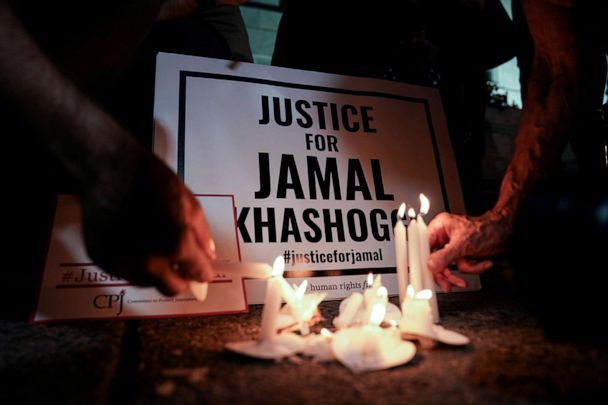
—————————————————————————————————————————————————————————-
Directeur exécutif de The Red Lines Project, David A. Andelman est chroniqueur pour CNNOpinion. Et auteur de la page SubStack Andelman Unleashed. Son dernier livre, « A Red Line in the Sand: Diplomacy, Strategy, and the History of Wars That Could Still Happen, » a été publié en janvier 2021, avec son podcast Evergreen. Le 1er décembre 2021, par décret du président Emmanuel Macron, il est décoré du grade de chevalier de la Légion d’Honneur.
—————————————————————————————————————————————————————————-
By Hanan Elatr Khashoggi
Sometimes when I smell cigar smoke wafting in the air, it reminds me of my husband, Jamal Khashoggi, and for a brief moment I think he is still alive, opining on the political turmoil in the Middle East with his friends and colleagues. Grief has a funny way of sneaking up on you, and sometimes it slaps you in the face, like when I realize it has been over four years since his murder.
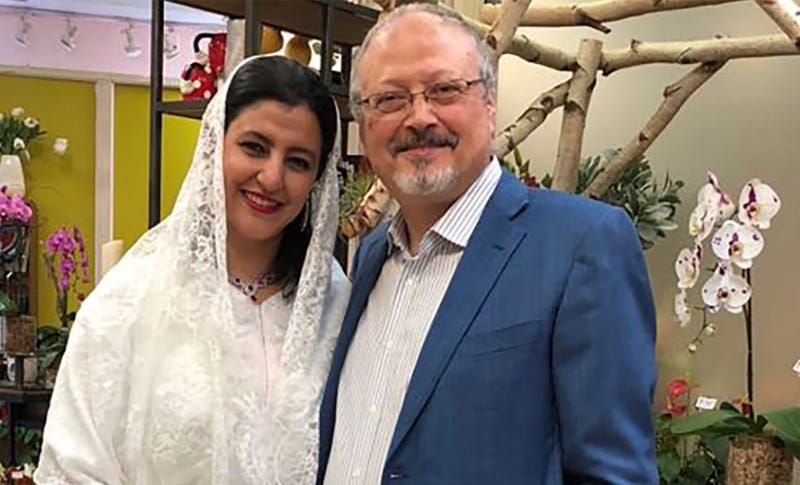
Jamal was more than a journalist, he was my loving husband, a proud father of four, and a doting grandfather of three. Family meant the world to him, and that is what attracted me to him when we first met in 2009. When he asked me to marry him in 2018, it was an easy decision. We had a beautiful June wedding ceremony in Alexandria, Virginia, and settled in our home.
Our future plans were crushed on October 2, 2018, when I awoke to the horrible news that Jamal was missing. I frantically called his cell phone numerous times, but he did not pick up. I called Jamal’s children to see if they had any more information. I called everyone I knew, desperately pleading for information about my husband. As the hours, days and weeks wore on, it became readily apparent to me that Jamal was never coming back. I immediately rushed to our home in Virginia to mourn the loss of my husband and put his personal property in order. Yet four years later, I still do not have closure.
As his widow, I intend to hold all parties accountable for my husband’s murder, including the NSO Group [Israeli-based developer of Pegasus spyware], and the Governments of the United Arab Emirates and Saudi Arabia. But in order to do so, I need the assistance of the Biden Administration and the Government of Turkey to help me obtain the one last piece of evidence that may hold the clue to my husband’s murder: his two cellphones, a tablet, and a laptop.
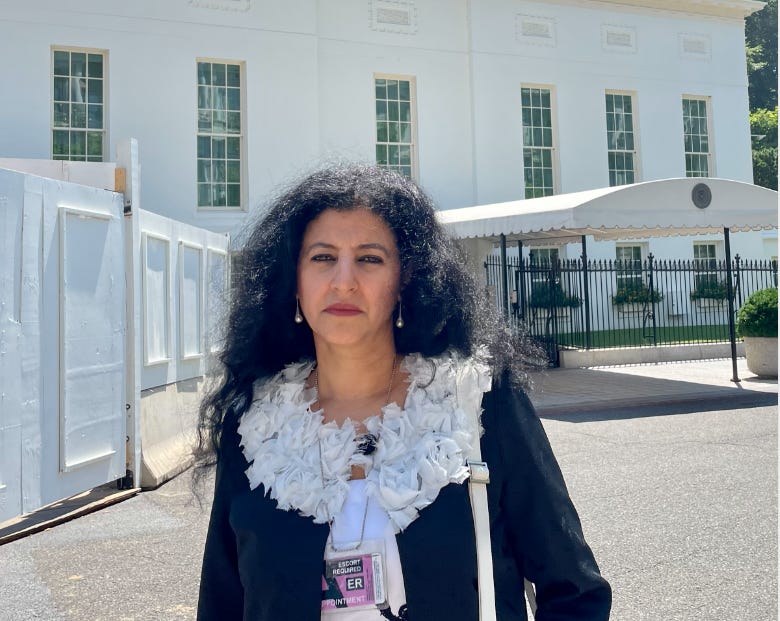
This year, the twists and turns of legal proceedings and policy decisions have resulted in some individuals and organizations misusing my husband’s true legacy. The Biden Administration’s recognition of immunity for Saudi Crown Prince Mohammed bin Salman is a matter of American Constitutional principles, foreign policy, and international law. As widow of Jamal Khashoggi, I have the right to hold all parties accountable for my husband’s death. I intend to sue the Government of Saudi Arabia and all those agents and individuals involved in my husband’s murder. Although most of my husband’s murderers have been identified, I am not certain all have been held accountable. I did not observe the legal proceedings in Saudi Arabia, but from what I read, those who committed this heinous crime did not receive the appropriate punishments. Thus, I trust the U.S. court system to assist me with this task.
In 2021, I was informed by Forbidden Stories, Amnesty International, and Citizen Lab, that my devices had evidence of NSO’s spyware Pegasus dating back to 2017, when Jamal and I were in constant contact. Further examination of my devices not only showed tracking by NSO’s spyware, but also evidence that another spyware, Cellebrite, was implanted on my devices and downloaded all my communications with Jamal. All this occurred in April 2018, after I was engaged to Jamal, and while I was under 17 hours of harrowing interrogation by United Arab Emirates intelligence authorities. So, when I hear Shalev Hulio, the former CEO of the NSO Group, denying his company’s involvement in my husband’s murder, my grief becomes unbearable. Furthermore, NSO’s attempts to sell their company to politically-connected investors in the U.S., or playing musical chairs with their leadership, will not reverse the stain of their involvement in my husband’s murder. I am determined to make them face the consequences of their culpability through the U.S. legal system.
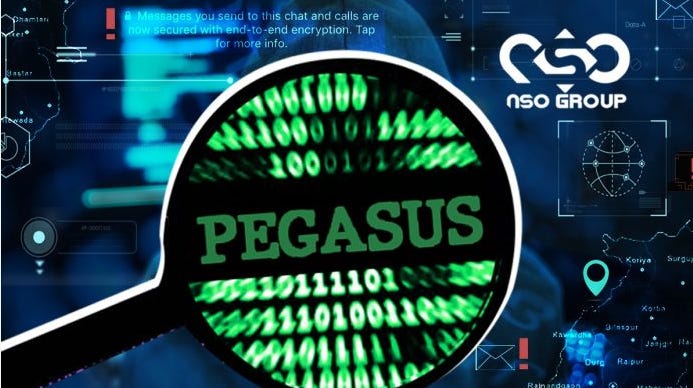
A deeper analysis of my cell phones and laptop by Citizen Lab revealed that a specific intelligence division of the Government of the United Arab Emirates attempted to install NSO’s Pegasus spyware on my devices. This analysis pinpointed the exact date and time installation occurred, which coincided with the period I was under 72 hours of interrogation in Dubai. At that time, Emerati authorities seized all my devices, threatened me and demanded my passwords. I was heartbroken to discover later that my devices had been compromised, as Jamal and I constantly discussed our plans for the future, including our travel plans. Who was listening in on us and when? As a client of the NSO Group and a close ally of Saudi Arabia, the UAE has now been implicated in my husband’s murder, and I intend to hold them accountable.
I suspect Jamal’s phones were equally compromised by the NSO’s spyware. Is this how Saudi and Emirati authorities knew Jamal’s every movement and all his travel plans? Was his murder premeditated, even back to 2017 when Pegasus could have been easily implanted on his devices while he was still in Saudi Arabia? In order for me to have the most complete evidence available for my legal actions, I need to obtain all of Jamal’s personal devices being held by the Government of Turkey.
Since my devices were compromised by NSO Pegasus spyware, I am certain Jamal’s devices were too. My attorney, Randa Fahmy, made a recent request for these devices through Hasan Murat Mercan, Turkey’s Ambassador to the United States. I have personally asked Turkish President Recep Tayyip Erdoğan for my husband’s devices, but neither request has been successful. The Turkish Government has been clear that it does not intend to proceed with either the investigation or the trial of my husband’s murder. It should therefore relinquish any evidence still in its hands.
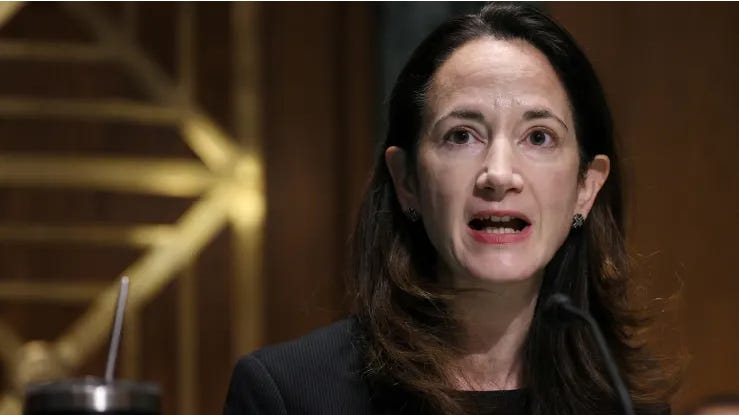
I recently turned to the Biden Administration’s U.S. Director of National Intelligence, Avril Haines, to assist me in securing these devices. I asked Director Haines to formally request that Turkey return these key pieces of evidence to me, in light of impending legal action in the U.S. As Jamal’s widow, I have the right to know if his devices were infected with spyware and at whose direction. I will continue to consult with the White House to make sure all information concerning my husband’s murder is revealed.
I am proud to have been Jamal’s wife, and now his widow. I will continue to honor his legacy today and everyday as a wonderful family man, husband and journalist. In the words of Jamal, “Speak your conscience, to do otherwise would betray those who cannot speak for themselves.” I promise you, my dear husband, that I will continue to speak my conscience and yours—holding all parties accountable for your murder.
To explore some further issues, Andelman Unleashed engaged Hanan Elatr Khashoggi in a conversation about her life, her late husband’s aspirations, and her efforts to obtain justice for his assassination.
Andelman Unleashed: I’ve long been interested in what Jamal might have done in the future, had his life not been snuffed out like this. Did he ever tell you what his vision for the future looked like as his life went forward?
Hanan Khashoggi: Of course, I know what his vision was and what he was aiming for, because that’s why I fell in love with him, that’s why I got married to him, that’s why I was supporting him and sacrificing with him. He was aiming to develop a democratic political system in the Middle East. He was aiming to have his Saudi Arabia, for example, to be like the United Kingdom, like Sweden, like Denmark. And he believed we deserve to have a such thing. This is what his aim was.
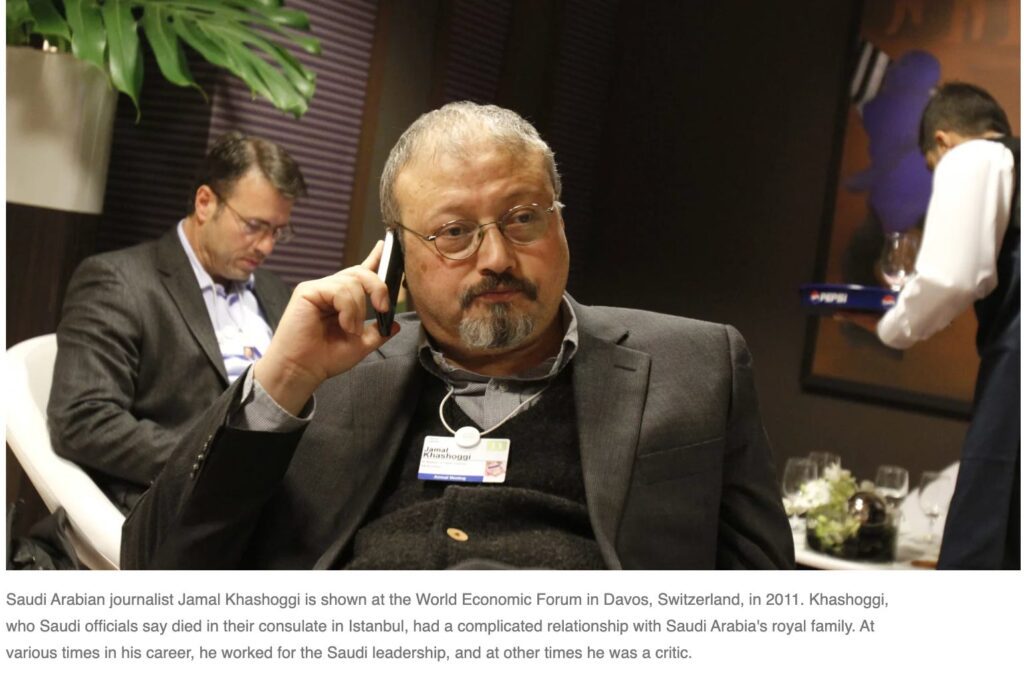
But let me go very quickly over how I met Jamal and what happened to obstruct his aim and his future. I am talking about the last few months of my husband’s life, which people around the world are not aware of. I grew up in the United Arab Emirates. I was working as a crew member on Emirates Airline, I met Jamal in the Arabic Media Forum in 2009. I was one of his fans already. In 2016 our relations became stronger. That same year, Jamal did an interview, offering a negative opinion about electing Donald Trump as president. The reaction from authorities was very bad. He was in Saudi Arabia, they put him under house arrest, and attempted to silenced him. They told him, do not meet with anybody, just sit at home. At this time, I was calling Jamal quite frequently. I was supporting him. In fact, I spoke to a lot of journalists to support him, urging them to write about him and his plight.
Andelman Unleashed: Let me interrupt you so that we may understand this better. In 2010, I met him Jamal in Riyadh, in the offices of Prince Alwaleed bin Talal. He was, he told me, working on creating an antidote to Al Jazeera—a new television network, financed by Prince Alwaleed. That was his vision for carrying democracy forward, what he was very concerned about. Mohammed bin Salman, MBS as he was known, had not really come on the scene at that point, certainly was not in any fashion the powerhouse he later became. It was only later that the two of them crossed paths. Tell me your understanding as to how all this happened?
Hanan Khashoggi: Jamal was going to establish a television network, but not anti-Al Jazeera. He wanted to be in the middle between Al Arabiya, which belongs to Saudi Arabia, and Al Jazeera. He wanted to make something unique like his personality. Jamal was always aiming to be a unique person for the Middle East. Jamal was creating Al-Arab, and it was based in Bahrain.
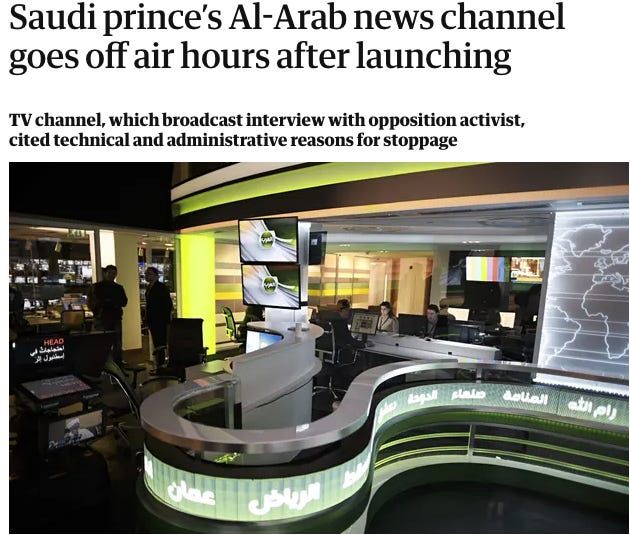
It did open, for one day. [February 1, 2015] The king of Bahrain shut it down because Jamal tried to make it be different. And then, on the first day of their broadcasting, he did an interview with the leader of the Shia in Bahrain, [Khalil al-Marzooq] who was against the king of Bahrain. This is why the king of Bahrain shut down the channel. It was not because it was anti-Al Jazeera. It was not because of Alwaleed bin Talal.
Andelman Unleashed: So, you met Jamal, you got married and where were you living at the time?
Hanan Khashoggi: We got married in America, in Alexandria. We were living in his house in Virginia. In 2017, Saudi authorities had removed their house arrest and allowed him to move. He got an invitation in the summer of 2017 to go to Abu Dhabi. On his way to Abu Dhabi, the United Arab Emirates denied him access. They sent him back to Saudi Arabia, and this alerted him. This was not a good sign. Jamal was advised to flee to his house in America and keep silent. “Do not share in politics, Jamal,” he was told. “Run away to your house in Virginia and keep silent. He did not keep silent. As soon as he arrived, he attacked [Egyptian president Abdel Fattah El-] Sisi. He attacked this dictator. It was about the Arab spring.
Andelman Unleashed: So, he never really went back to Saudi Arabia after that?
Hanan Khashoggi: He wished to go back. He regretted that he had run away. He believed in his vision. He believed he should have been patient and stayed in Saudi Arabia. Jamal died a hundred times before 2nd of October [2018]. He wanted to go back, but the gap became bigger, and bigger, and bigger between him and his country.
Andelman Unleashed: That was clear from how they were writing about him how they were speaking about him. He was basically a persona non grata there at that point?
Hanan Khashoggi: Yes. Yes. They created a lot of illusions around him that were not true. He wished to go back.
Andelman Unleashed: And then there was that horrible event at the consulate. Jamal was assassinated. Then you began your efforts to keep his memory alive. Help us understand more of what happened behind the scenes—a sense of how you worked, a fly-on-the-wall perspective. What was it like inside the White House; when you talked with the Turkish government or the Emirates, when you pressed them for action. What reception did you have?
Hanan Khashoggi: Allow me to go step by step. First Step. I had grown-up in the United Arab Emirates. Yet it was very bad towards me. They put me under house arrest as soon as I got engaged to Jamal in the first week of April 2018. They had been watching me from 2017. This was the reaction from the United Arab Emirates when I got engaged and when I refused to make an interview with al-Arabiya television. I sought help from a lot of people. Saudi Arabia has been using the United Arab Emirates to squeeze me and get information about my husband.
Andelman Unleashed: Flash forward to the meeting at the White House before President Biden made his trip to Saudi Arabia last year.
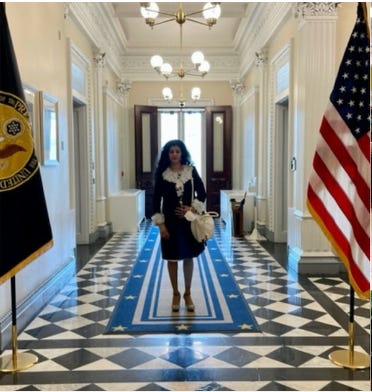
Hanan Khashoggi: It was a great meeting. I have to say I am very happy with the administration of President Biden. They were very careful to listen, to know the truth, and to help dig up the truth about Jamal. When I did meet three high officials in the White House in July before the president traveled to Saudi Arabia, they had a deep knowledge about me and what I had been going through. They listened and they gave me great moral support. What was the reason behind my visit to White House? Because until then, there had been a campaign against my husband, which is shameful, that’s why I left your country for a time, and they were aware of this. They promised me that the president would bring this up with Mohammed bin Salman, and he did. He spoke about what Jamal needed and Jamal’s wish, which was the immediate release of their political prisoners, especially a dear friend of Jamal, Essam al-Zamil [a leading young Saudi economist imprisoned for « speaking truth to power »].
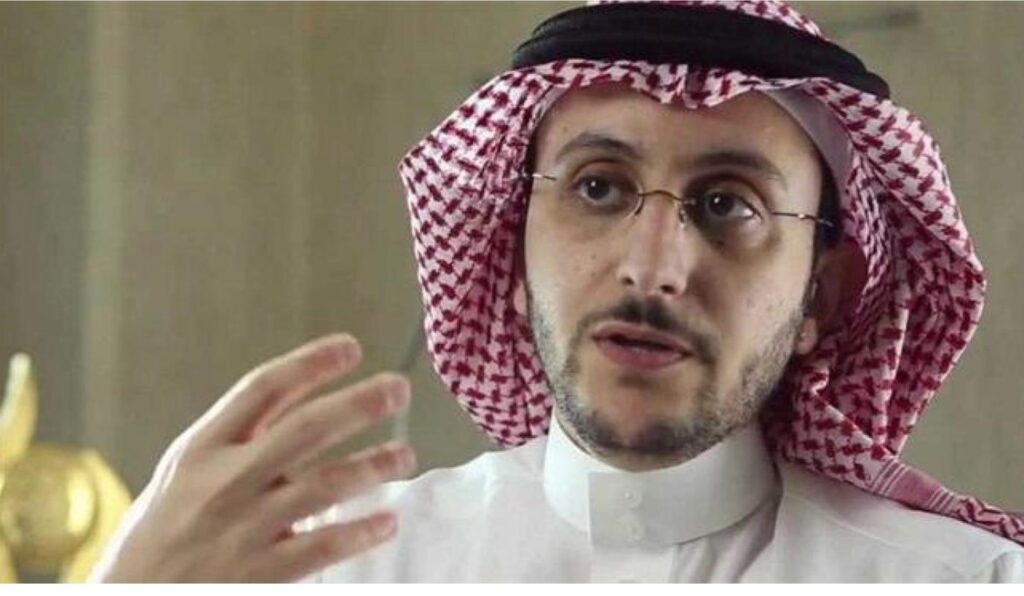
Andelman Unleashed: There was a considerable controversy when President Biden went to meet MBS. It didn’t seem to us that as though he really confronted him very directly. Do you have any assurances of him fulfilling the pledges his aides gave to you that he would raise the question of Jamal with Mohammed bin Salman and would press him on this? Did that ever happen at that summit?
Hanan Khashoggi: It was very clear. He brought the wishes of Jamal and did tell MBS, “Your administration is responsible for this, assassinating Jamal Khashoggi. And when the president was asked, he said, ‘I did bring up this issue. I did speak on behalf of Jamal,’ which had been my message to President Biden.
Andelman Unleashed: So, Hanan, do you feel that you are going to succeed in getting justice for Jamal?
Hanan Khashoggi: A hundred percent. I am very confident, and I am sure. I believe I made the right choice to run away to your country here in the United States. And I have very strong evidence we have collected. We are still in the process of collecting more evidence for our court cases against the Saudi government and other parties. Still, I need everybody’s help—those who want justice for Jamal Khashoggi, but especially to get his devices from the Turkish authorities. And I would like to share with you, before I ran away from United Arab Emirates, I did meet with one journalist, close to Saudi Arabia and the United Arab Emirates. He told me that one of his conversations with Jamal had been taped in a coffee shop in Istanbul in May 2018. I want to say that Turkish intelligence was also watching my husband. Why is it that they didn’t save my husband? I want to know how many countries were spying on my husband. This will help bring justice for my husband. As for my evidence, I am very confident. But I need to get his devices.
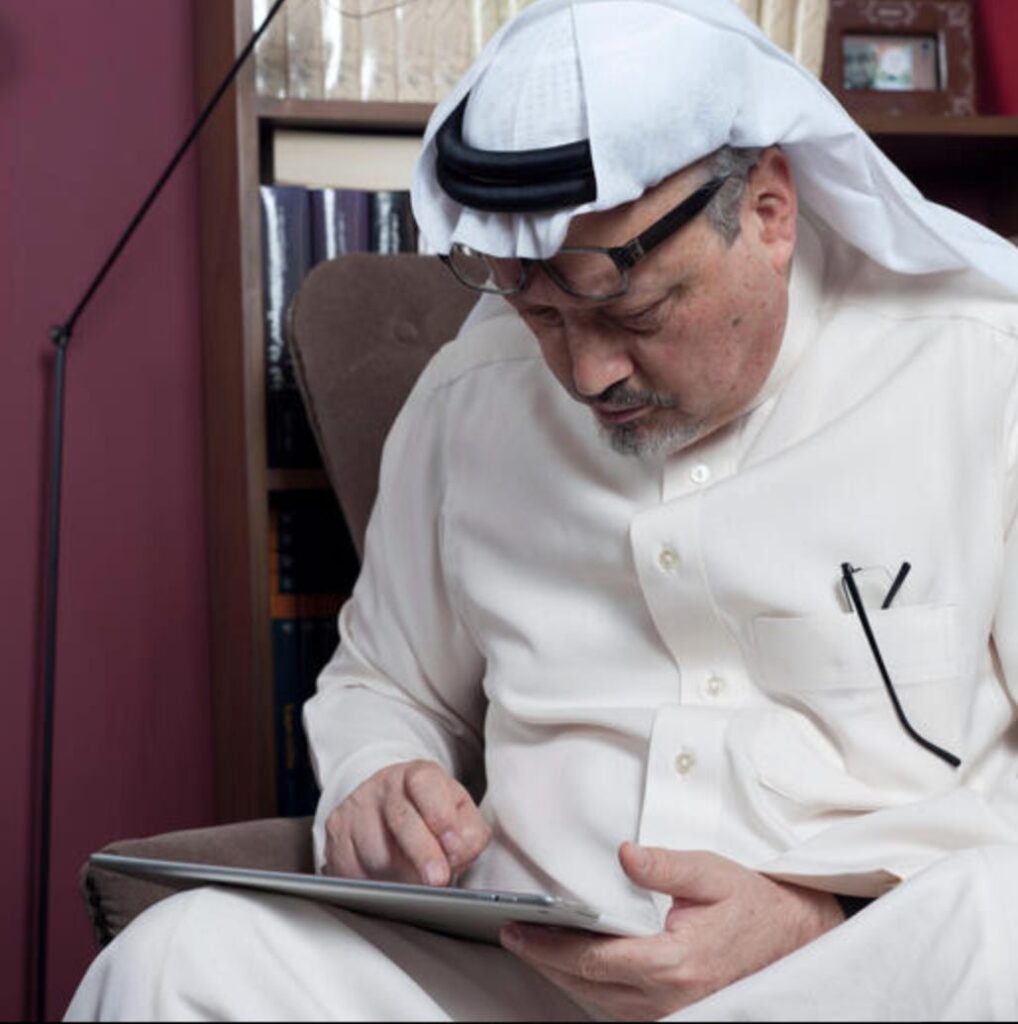
Andelman Unleashed: You think his devices still exist somewhere? They haven’t been destroyed? You think they are holding them still?
Hanan Khashoggi: Yes. My fear is they will give them to the Saudis. The Turks are using their possession of these devices very effectively, and Qatar as well. It is a political card.
Andelman Unleashed: So, who do you see as the biggest obstacles to getting to the heart of the Jamal conspiracy—basically hold someone accountable? Do you see the Turks or the Saudis as your principal targets?
Hanan Khashoggi: To helping me to continue and get justice for Jamal—the Turks. They need to cooperate with me. They use it as a political card. They need to be more transparent and help me get real justice, and not just use Jamal’s murder as a political tool or as part of an economic or political, deal.
Andelman Unleashed: In some respects, this would never have happened without the complicity of Turkish authorities in your view?
Hanan Khashoggi: Yes, and now they need to be more transparent. They are not. They have used this for three years for their own benefit, not to win justice for Jamal Khashoggi.
Andelman Unleashed: There is a big presidential election coming this Spring in Turkey. There is a chance that Recep Erdogan could be deposed as president and a new more democratic, more liberal, more western leader could arrive in Turkey. If that happens and transparency is allowed with respect to Jamal’s devices, do you think it is possible that MBS could be held more fully accountable on this?
Hanan Khashoggi: Any cooperation from the Turkish Authority regardless of who is the ruler, or his agenda will be a help. It is for the Turkish people to choose who they want as their leader. I am not interfering in this, but I need my devices, regardless of who’s the leader, before I can bring real justice for my husband.
Andelman Unleashed: Do you fear for your life? Do you feel for your safety now even in the in the United States?
Hanan Khashoggi: Every day I fear for my life. I don’t know why I’m still alive because I’m the second victim after Jamal. I don’t feel safe. I feel any of these guilty party against my husband are against me. They can just get rid of me. Yes, I know there is high security here. I know this is a democratic country, but I don’t have the option of a normal life here.
Andelman Unleashed: How could this be changed?
Hanan Khashoggi: If I get more help and more support from people to get real justice for my husband and display his real legacy.
